Hey there! Are you looking to make a positive impact on the environment right from your home? Our new composting service is designed specifically for tenants like you, making it easier than ever to reduce waste and create nutrient-rich soil for your plants. Join us as we explore the benefits of composting and how you can get started, and let's dive into the details together!
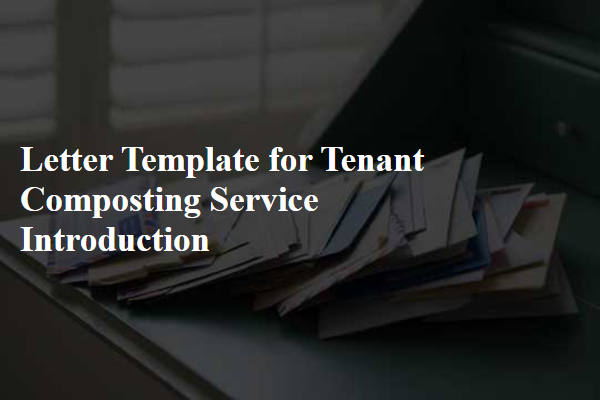
Introduction and Purpose
Introducing a composting service provides tenants with an eco-friendly waste disposal option. Composting actively transforms organic waste such as fruit scraps, vegetable peels, and yard trimmings into nutrient-rich compost, fostering a sustainable environment within the community. This service not only reduces landfill waste but also enhances soil health, supporting local gardening initiatives and improving the green space in residential areas. Engaging tenants in composting programs cultivates environmental awareness and encourages participation in community-building activities focused on sustainability and responsible waste management practices.
Environmental Benefits
Composting offers significant environmental advantages, including the reduction of landfill waste and the promotion of soil health. Landfills account for approximately 20% of methane emissions, a potent greenhouse gas, but composting organic materials like food scraps and yard waste can mitigate this problem. By diverting waste from landfills, composting reduces the demand for landfill space and minimizes the environmental impact associated with waste transportation. Additionally, compost enhances soil structure, moisture retention, and nutrient content, supporting sustainable gardening practices. For example, a single compost bin can transform up to 400 pounds of organic waste annually into nutrient-rich soil amendment, benefiting local ecosystems and enriching community gardens. Engaging in composting fosters a culture of sustainability and environmental stewardship within communities.
How the Composting Service Works
Introducing a composting service enhances sustainable waste management practices for tenants living in multi-unit residential buildings. The service involves a convenient collection system where tenants can dispose of organic waste such as fruit and vegetable scraps, coffee grounds, and yard waste in designated compost bins located within the premises. Each collection cycle occurs weekly, ensuring timely processing of organic materials. The collected waste is then transported to local composting facilities, where it undergoes aerobic decomposition, transforming waste into nutrient-rich compost for gardens and landscaping. Education sessions, including workshops on composting best practices, may accompany the service, fostering a community committed to reducing landfill contributions by up to 30% and promoting environmental stewardship. Tenants will receive guidelines that specify acceptable and unacceptable items for composting, ensuring effective waste management.
Tenant Participation Instructions
The tenant composting service aims to promote sustainable waste management practices within residential communities, emphasizing the importance of composting organic materials. This initiative encourages participation by providing clear guidelines and procedures for tenants in multi-family housing, including a list of compostable items like fruit and vegetable scraps, coffee grounds, and yard waste. Furthermore, tenants will receive instructions on collecting compostable materials in designated bins located within common areas, ensuring an eco-friendly approach to waste disposal. Educational resources, such as workshops and flyers, will be available to enhance understanding and engagement in the composting process, fostering a sense of community and environmental stewardship. Regular updates on the progress of the composting program and its impact on reducing landfill waste will also be shared, motivating continued involvement.
Contact Information for Support
Introducing a tenant composting service offers an eco-friendly solution for residents to reduce waste and promote sustainability. Composting, a natural process of recycling organic matter, transforms food scraps and yard waste into nutrient-rich soil. This service can educate tenants about the benefits of composting, such as decreasing landfill contributions and enhancing community gardens. Key components include a communal compost bin located in the apartment complex's shared outdoor space, regular collection schedules, and dedicated support for questions. Contact information for support representatives, including phone numbers and email addresses, should be readily available to assist tenants with any composting inquiries or troubleshooting issues related to the service.
Letter Template For Tenant Composting Service Introduction Samples
Letter template of tenant composting service guidelines and best practices
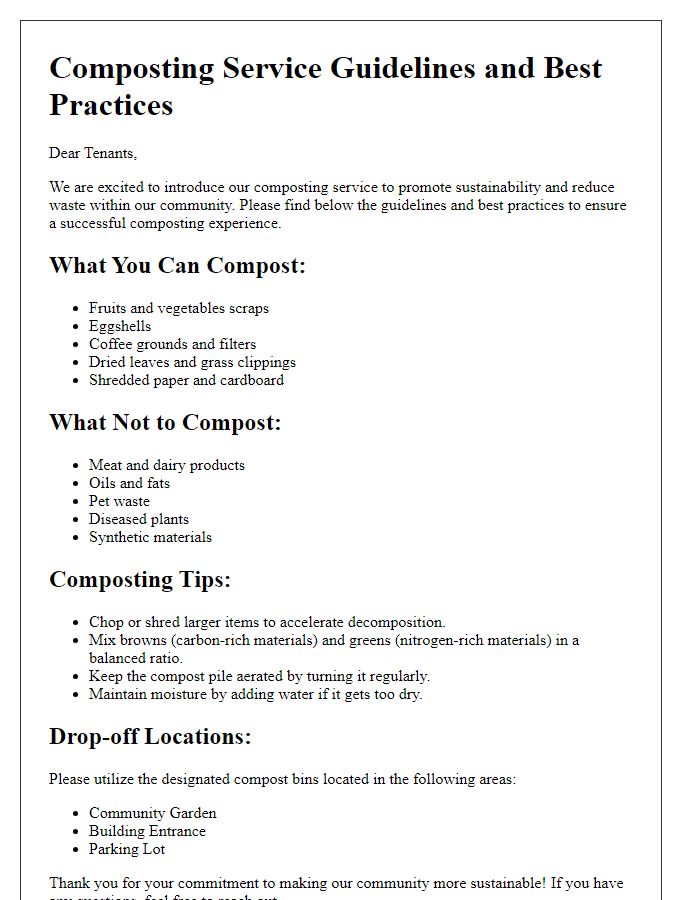
Letter template of tenant composting service community engagement invitation


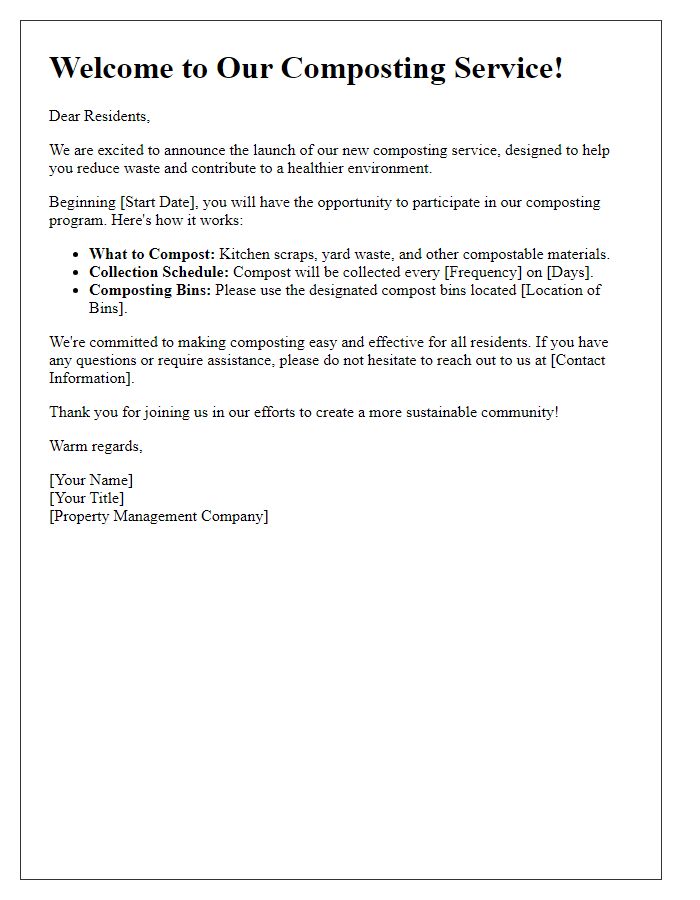
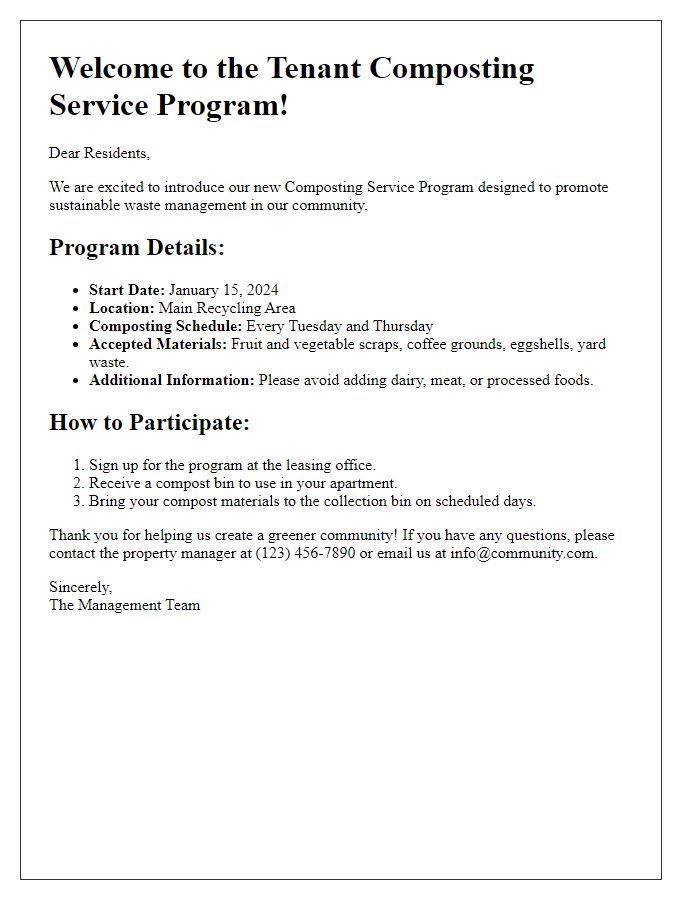
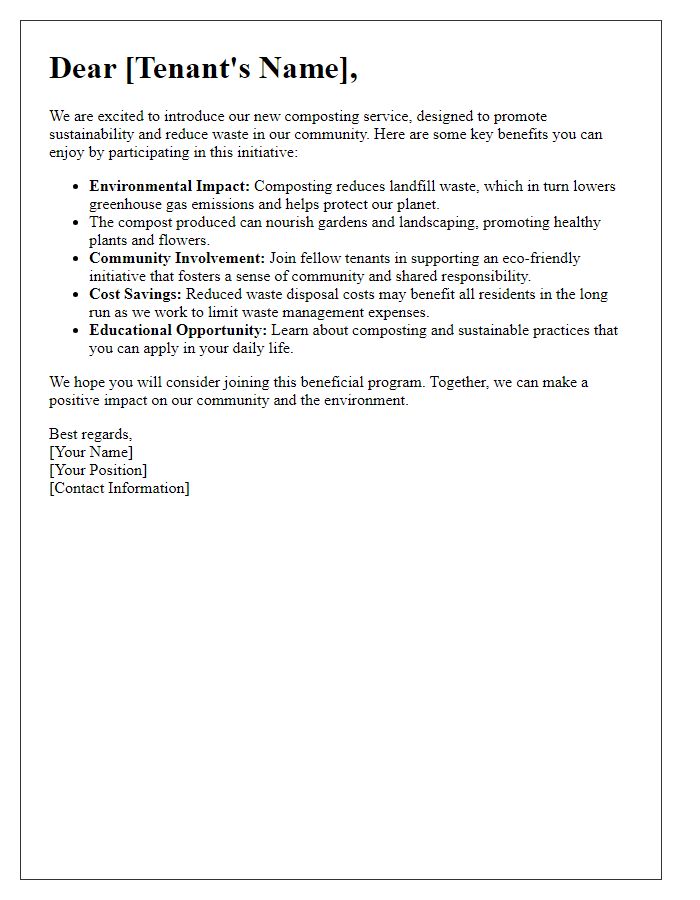
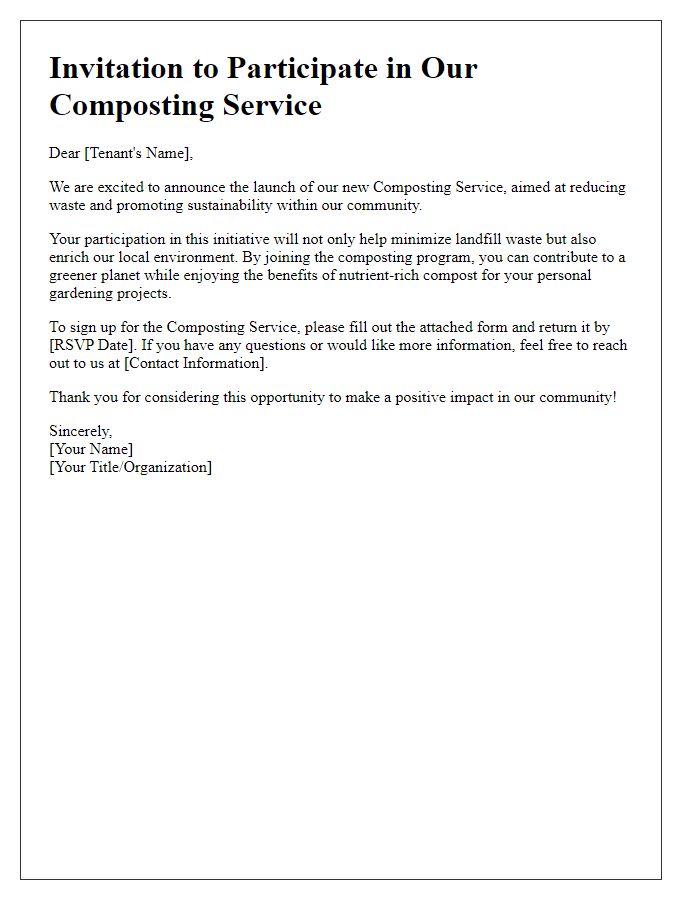
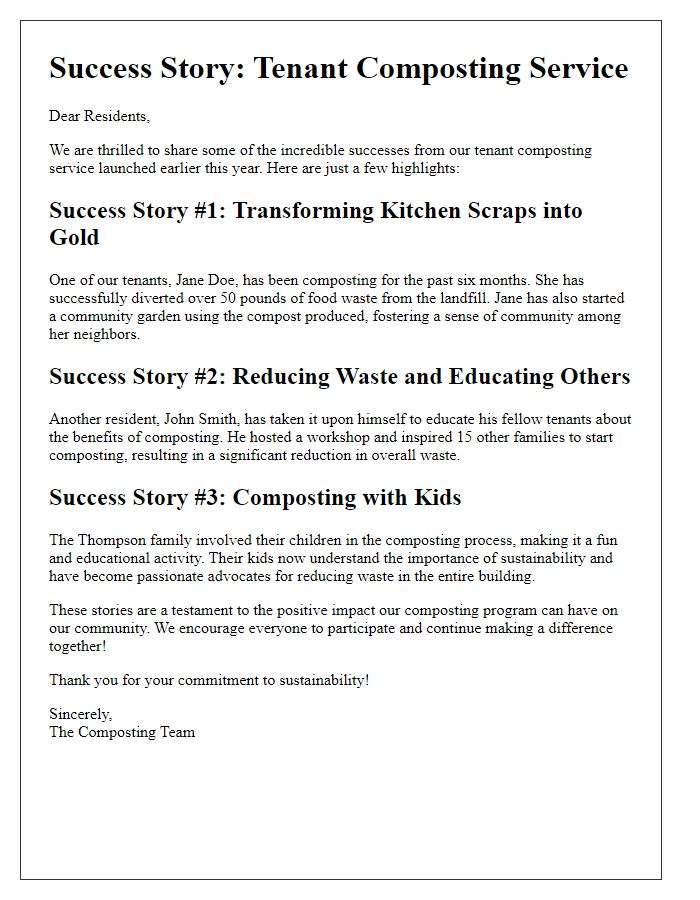
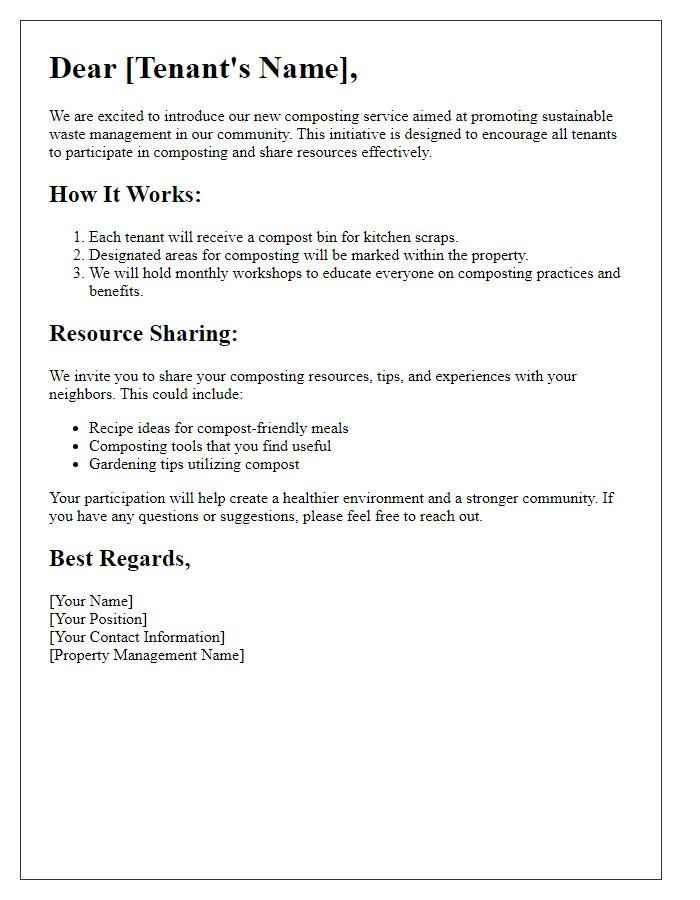
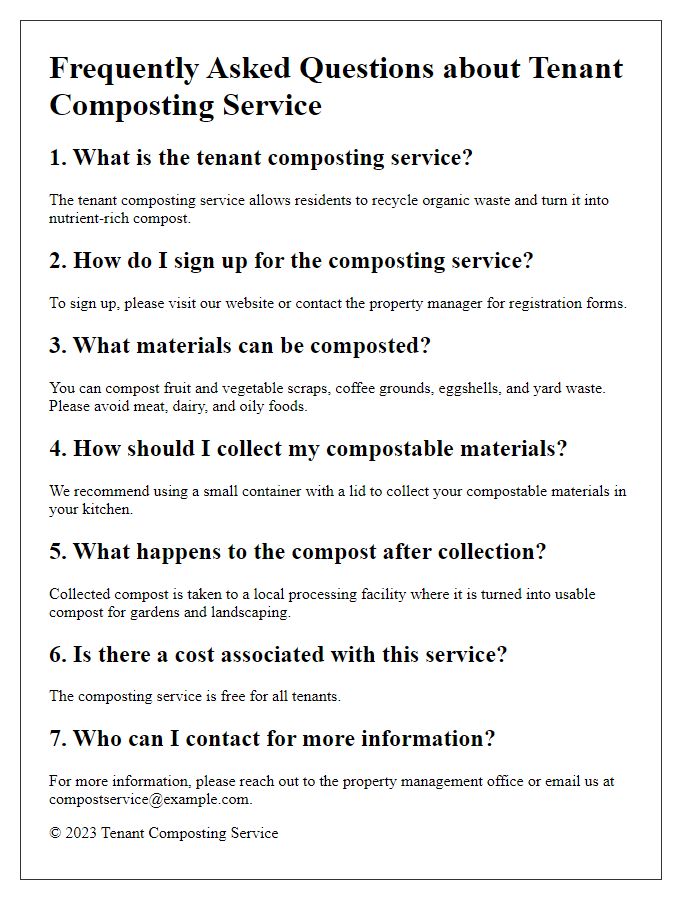
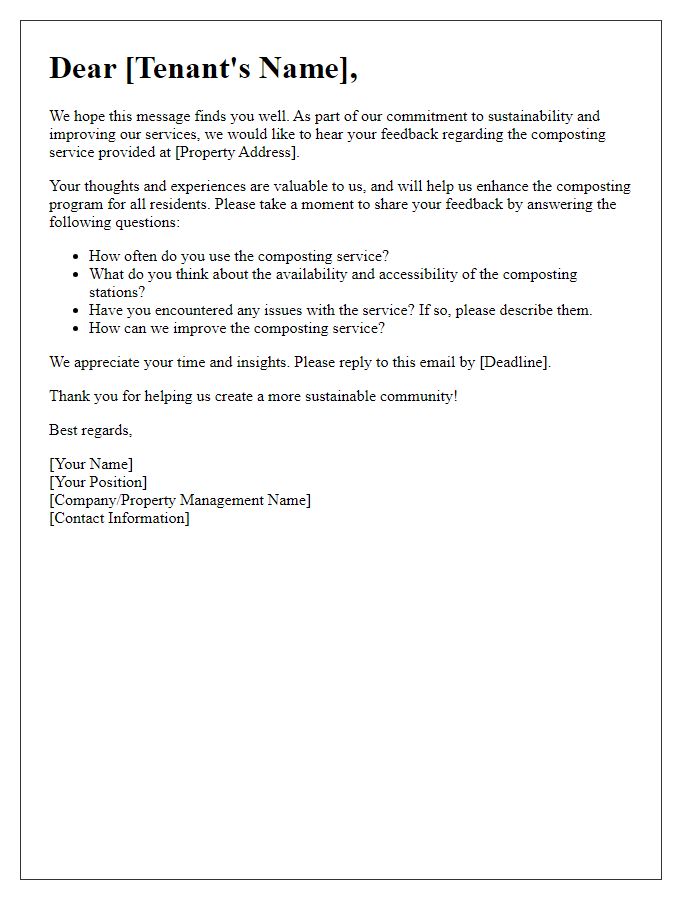


Comments